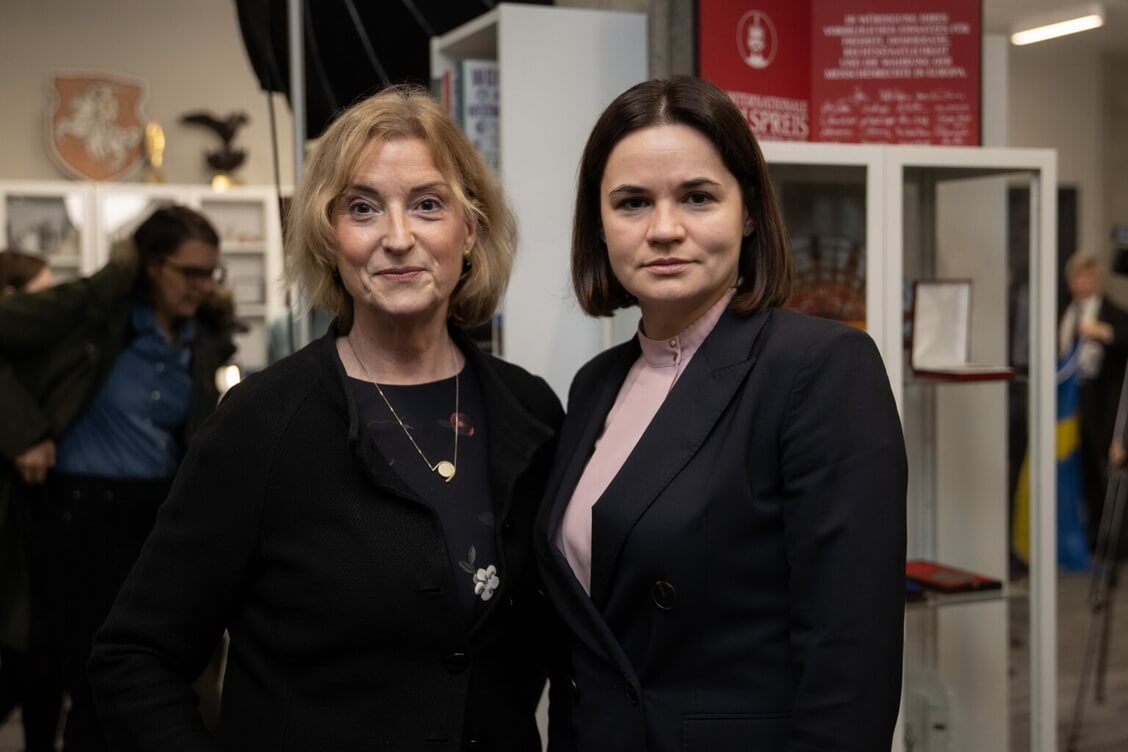A Belarusian-Swedish diplomatic row broke out seemingly out of the blue. Minsk recalled its ambassador from Sweden, and Stockholm responded by recalling its charge d’affaires from Belarus. The withdrawals of diplomats came two months after Sweden appointed Kristina Johannesson, a former ambassador to Belarus, as special envoy for relations with Belarusian pro-democracy forces.

Minsk’s unusually strong reaction
It is a bit strange and not entirely clear why that appointment has provoked such a strong reaction.
Earlier, France, Poland and Estonia appointed their ambassadors for relations with Belarusian pro-democracy forces, Violaine de Villemeur, Artur Michalski and Marko Koplimaa, respectively.
Asta Andriauskienė, ambassador-at-large at the Lithuanian foreign ministry, performs similar functions.
Those appointments did not meet with the same outrage from Minsk and did not lead to the recall of the ambassadors.
Minsk might have been offended by the remark that Swedish Foreign Minister Tobias Billström made in November, shortly after appointing the special envoy.
When asked by Radyjo Svaboda whether he recognized Śviatłana Cichanoŭskaja as the president-elect, he said: “We recognize her as a person who won the election and who should rightfully become the inaugurated president of Belarus.”
Since 2020 many Western politicians have made similar statements. For example, on December 13 Polish Foreign Minister Radosław Sikorski thanked Cichanoŭskaja on X for congratulating him on his appointment, addressing her as “President Cichanoŭskaja.” The Belarusian foreign ministry ignored it.
Besides, Johannesson was appointed on November 6, and the Swedish foreign minister made his statement shortly after. If that was the reason, Minsk was too slow to react.
Minsk looking for excuses to escalate
Minsk has long held a grudge against Sweden. Stockholm has supported civil society and the pro-democracy movement in Belarus for many years. It has done so consistently, regardless of the domestic political context.
On December 2010, following the violent dispersal of an opposition rally in Minsk, the foreign ministers of Sweden, Germany, Poland and Czechia published a joint article in the New York Times titled “Łukašenka Is a Loser,” which enraged Minsk.
In 2012 two Swedes illegally flew a small plane across the border from Lithuania to drop hundreds of teddy bears with pro-democracy messages over Minsk and other Belarusian cities. In response, Minsk expelled Swedish Ambassador Stefan Eriksson.
Raw nerves before elections
An escalation with the West is likely in the run-up to the local and parliamentary elections scheduled for February 25 and presidential election set for next year.
Łukašenka made that point on January 5, “We have a special year ahead of us. It is clear that the tension will be enormous: everyone is preparing for the presidential elections in Belarus – both in the East and in the West.”
It is not clear why he mentioned the East, since his enemies are the European Union and the United States.
Minsk used to turn a blind eye on EU countries’ envoys for liaison with exiled Belarusian opposition. Now it may be looking to increase pressure on the EU, and the row with Sweden is just the beginning.
In lockstep with Moscow
Moscow is euphoric, hoping to defeat Ukraine on the battlefield.
A year ago, facing major problems in its war against Ukraine, the Kremlin was in panic. Moscow had clearly overestimated its power, it had not planned for a protracted war and had not anticipated a harsh reaction from the West.
Although the situation on the front lines has not changed much since, the Kremlin is optimistic. The Western sanctions fell short of what Moscow initially feared, and Russia has largely managed to circumvent them. Its military industry is ramping up military production, while the West is clearly experiencing war fatigue and is cutting aid to Ukraine.
Meanwhile, tensions between Ukrainian President Volodymyr Zelensky and his top general, Valerii Zaluzhnyi, have spilled into the open.
Putin and his cronies hope that Donald Trump wins the US presidential election, the West crumbles, and Russia wins the war, forcing Kyiv to capitulate. No matter how realistic these expectations are, Moscow makes decisions based on these assumptions. Putin’s rhetoric has become more aggressive.
His euphoria has energized Minsk. Łukašenka says that he has withstood the sanctions, the Belarusian economy is growing and the unipolar world led by the United States is collapsing.
The Belarusian leader considers Western politicians to be weaklings and thinks that once he treats them from the position of strength, they will back down. So, he probably just decided it was the right moment to put some pressure on Sweden